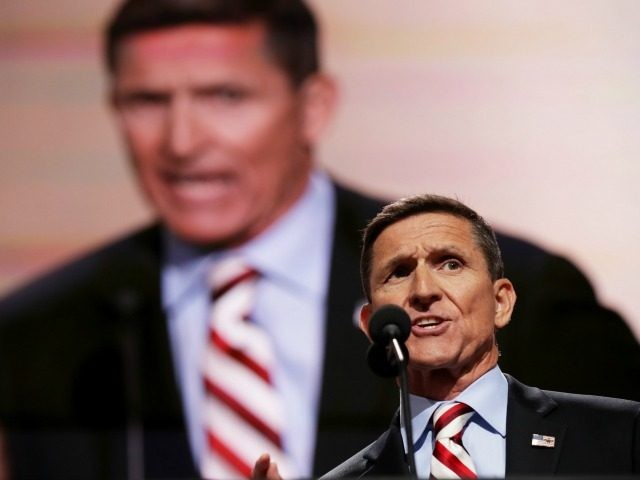
On the 25th day of the Trump administration, its national security adviser, retired general Michael Flynn, was forced to resign.![]()
The final blow came from reports that the Trump administration learned last month that the US Department of Justice warned that Flynn could be susceptible to blackmail from the Kremlin. The resignation also followed reports that Flynn misled US vice president Mike Pence and others about the extent of his discussions during the presidential transition with Russian counterparts regarding the lifting of the Obama administration’s sanctions on Moscow.
Some quick thoughts.
First, the questions about Russia aren’t going away.
Did Pence know about the Justice Department’s findings? Did Trump? Throughout the campaign, Trump’s odd admiration for Russian president Vladimir Putin struck a discordant note, even for Republicans (to say nothing of Democrats angered by the Kremlin’s hand in cyberattacks that resulted in the leaking of Clinton campaign emails).
After all, Trump was tweeting about Putin within hours of Flynn’s alleged discussion about the Obama sanctions:
Second, the Trump transition team (and not just Flynn) was interfering on everything in the last weeks of the Obama administration. Remember Trump’s own statements on Israel during that UN vote last December. The Trump transition team stepped on the Obama administration’s toes in an unprecedented manner. It’s not surprising that Flynn would be doing so on Russia. But, as with all scandals, it’s not about the original sin, it’s about the cover up.
Third, like it or not, chief of staff Reince Priebus and Trump’s son-in-law Jared Kushner are key allies in holding back the hardcore arch-nationalists Stephen Bannon and Stephen Miller. You might not like it, but those are the facts for Trumpology 101.
Fourth, also whether you like it or not, the future of American democracy and credibility doesn’t lie in the hands of congressional Democrats. It’s in the hands of Republicans willing to stand up to the Trump administration’s excesses. You may not like John McCain or Ben Sasse or Marco Rubio or Lindsey Graham or Jeff Flake or Susan Collins. Or even David Frum or Evan McMullin or John Podhoretz or Bill Kristol. Too bad. Those of us who believe the Trump administration is causing real damage to American credibility need their help.
Fifth, despite the lingering clouds of Flynngate, Flynn’s resignation is an opportunity for the Trump administration to reset its national security team by hiring a national security advisor with actual experience in the Oval Office. By the way, the White House must still appoint a deputy secretary of state, and that appointment has always been crucial, given Rex Tillerson’s lack of diplomatic and practical experience in government.
Sixth, and finally, there are reports that the Trump administration is considering three officials as potential permanent replacements. The first is Keith Kellogg, who will take over as interim national security adviser. But it seems like if Trump wanted him to fill the permanent role, he would have done so tonight. No administration wants to have this role vacant for long. It’s also difficult to see how, after all the fuss over “Crooked Hillary” and the Clinton email scandal, the Trump administration could today appoint David Petraeus (who is still technically on probation for his own violations with respect to confidential information), despite the bipartisan recognition of his talents. That leaves us with Bob Harward, who was one of James Mattis’s top deputies at CENTCOM.
